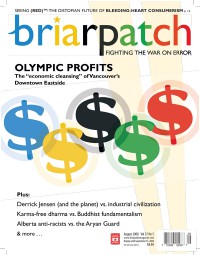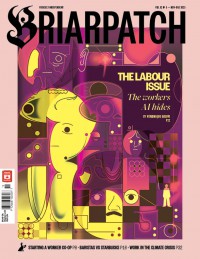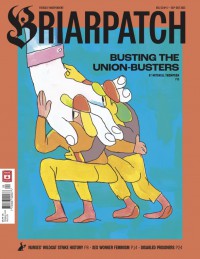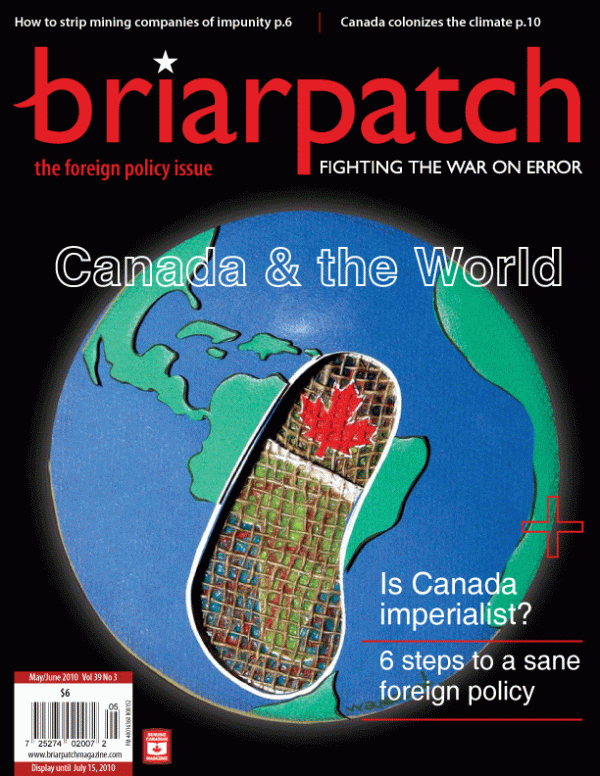
Foreign policy
What is Canada’s role in the global village? In the capitalist system? Is Canada imperialist? And what are the responsibilities of Canadian progressives and internationalists? These are the questions that drive our “foreign policy” issue. The search for answers takes us from Copenhagen to Kandahar, from the Toronto Stock Exchange to the streets of Tegucigalpa, and beyond.
Add To Cart $7.95
-
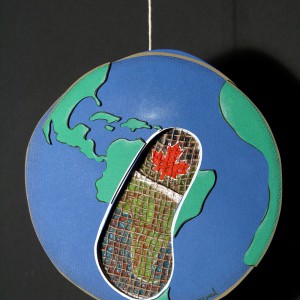 Magazine
MagazineLetter from the editor
George Orwell wrote that in a time of universal deceit, telling the truth can be a revolutionary act. Similarly, in an age of lies-passed-off-as-truth (the propaganda model), truth-passed-off-as-lies (satire) has a power all its own.
-
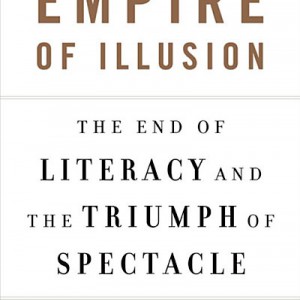 Magazine
MagazineEmpire of illusion
The theme of Pulitzer Prize-winning author Chris Hedges’ new book is pretty straightforward: no matter how you look at it, we’re hooped. “Our way of life is over” Hedges writes. “Our profligate consumption is finished. The good news, however, is that he looks at these desolate prospects from some awfully interesting perspectives, even if he is a bit short on solutions.
-
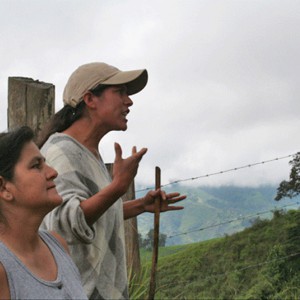 Magazine
MagazineTaking stock of Canadian mining
Marcia Ramírez hopes to set a precedent in Canadian courts that will benefit peasant farmers and indigenous peoples across the Global South. A community leader in her mid-20s, Ramírez is one of three Ecuadorian plaintiffs suing the Toronto Stock Exchange for over $1.5 billion.
-
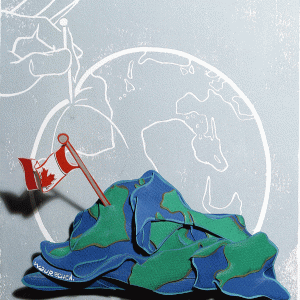 Magazine
MagazineThe battle for the atmosphere
December 2009’s Copenhagen climate summit fell far short of expectations. Explanations for the failure to reach a legally binding, fair and ambitious agreement to reduce global greenhouse gas emissions are legion but, in the end, the summit produced little more than the hastily negotiated Copenhagen Accord, a face-saving effort that does not commit nations to any binding emission reduction targets.
-
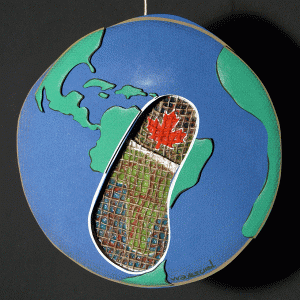 Magazine
MagazineCanada’s imperialist project
Canada has been active indeed on the world stage of late, but hardly as the force for good many Canadians imagine their country to be. Since June 2009, Canada has supported a coup in Honduras; three Salvadoran activists who were organizing against Canadian mining company Pacific Rim Mining Corporation have been assassinated…
-
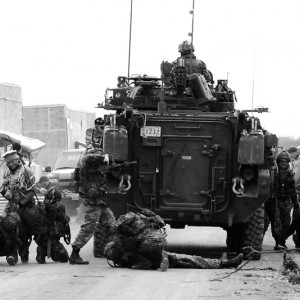 Magazine
MagazineWalking backward into battle
It was well after midnight when we got off the yellow school buses and stepped into a field of thick Alberta mud. The sides of the large field kitchen tents nearby were billowing in the cold wind. Our kit had just been chucked to the ground from the buses, each item landing with a wet thump. Maple Defender, a week-long training exercise, was designed to give us a taste of the war in Afghanistan, as far “down in the weeds” as it was possible to get without actually being there.
-
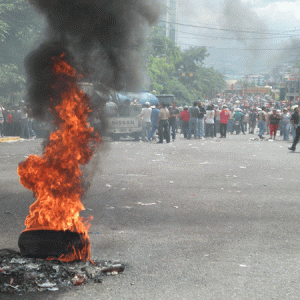 Magazine
MagazineUnfinished business
For the last 10 years, Juana López Nuñez (not her real name) has spent most of her waking hours making T-shirts for the Canadian company Gildan Activewear at the company’s San Miguel factory in Honduras. Today, at age 44, she has little use of her arms and experiences constant pain in her shoulders, neck and hands. She takes painkillers throughout the day, and has had one surgery, which didn’t ease the chronic tendonitis that keeps her up at night.
-
 Magazine
Magazine“An attack on Israel would be an attack on Canada”
“It’s hard to find a country friendlier to Israel than Canada these days” far-right Israeli Foreign Minister Avigdor Lieberman remarked last June. Indeed, in its recent actions the Canadian government has only reaffirmed and intensified its full-fledged support for the state of Israel, while conducting itself with what seems like a total disregard for public opinion both internationally and at home.
-
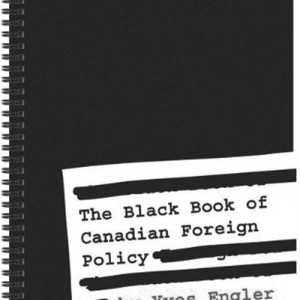 Magazine
MagazineCanada’s black book
The Black Book of Canadian Foreign Policy
Yves Engler
Fernwood, 2009It is commonplace even for critics of Canada’s role in Afghanistan and Haiti or of its vocal support for Israel’s recent military campaigns in Lebanon and Gaza to suggest that Canada has abandoned a long-standing tradition of being an honest broker in international politics, nurturing the idea that there is a mythical past in which Canada was an even-handed arbitrator of international conflict.
-
 Magazine
MagazineSix pillars of a progressive Canadian foreign policy
High-minded rhetoric aside, Canadian foreign policy is largely designed to serve hegemonic Canadian corporate interests abroad. To bring Canada closer to the status of a “peacekeeper” or “honest broker” here are some specific policies that the peace and social justice movement should pursue.



